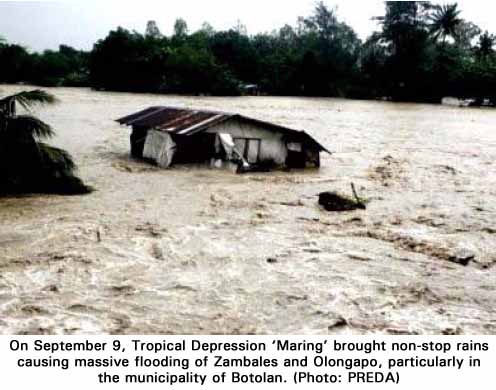December 09, 2009 - The truth about climate change is essential to the Copenhagen Conference and its aftermath. The nations of the world have not reached a comprehensive breakthrough agreement but the world desperately needs one to greatly reduce the outpouring of greenhouse gasses.
The people and especially the poor in developing countries who are being impacted daily and will be most affected by rising ocean levels, greater storms, floods and droughts in the future have little real say in the deliberations or the decisions. The rich and the powerful nations will be deciding the future of the planet as they have already done for centuries. Their economic wealth and military power has been built on the exploitation of the poorer nations, extracting their cheap low cost raw materials, processing them with fossil fuels and destroying the atmosphere as they grow rich. They grow richer by selling back to the poor nations high-priced manufactured goods as they have done for the past five hundred years.
The rich nations have made sinful alliances with the corrupt rulers of the poor nations to achieve this immoral and unjust exchange. However, wealthy nations like Australia foster coal-burning power plants on the poor nations like they have done and are doing in the Philippines and lock them into long term supply deals.
Coal is used to meet nearly 40% of the world’s current energy demand, creating over 40% of annual global carbon emissions. Global coal consumption is expected to rise by 1.9% to 4.2 billion tonnes by 2010. Australia is the world’s largest exporter of black coal, a position it has held since 1984.
The Australian Senate has blocked a new law that would help reduce the carbon emissions. Australia is contributing to the global warming while talking hot air in Copenhagen. How much better to finance geothermal power generation that has zero CO2 emissions for local power generation so feasible in the volcanic Philippines? But no, they want to sell Australian coal and the ruling Philippine elite decide in cahoots with them against the national interest of Filipinos. The Filipinos are the ones that suffer most.
The Indigenous People of the Aeta communities of Botolan, Zambales, not far from where I live, have suffered a total wipe out of their community, houses, simple fans, a small TV for which they saved for months all gone. Some died, most mercifully escaped. But their small farms and a secure future are all gone. They are refugees on waste land. I go there every ten days with relief food to help keep them going while planning a small re-housing project with the help of the Irish Church relief agency Trocaire — a small help for a massive problem.
Climate change damages and destroys thousands of lives. Antong is a tribal leader of the Aeta people here in Zambales province the Philippines. I sat with him in an impoverished makeshift refugee camp with tiny shelters made of grass hovels and plastic sheets. He told me the recent devastation wiped out his village and all their lands.
He is knowledgeable about Global Warming and knows that the blocking of the atmosphere with gasses from factories and millions of vehicles heats the oceans and brings ten times the evaporation of the seas and ten times the amount of rain all in a few days. Nothing can stop the raging waters that cover the lands and washes away the soil and leaves behind sand and stones. If only the negotiators in Copenhagen could see and understand this, they might agree more readily to really curb emissions.
“Now we are impoverished and 100 families are huddled here, the rest have scattered, I know not where they went”, he lamented as the relief workers handed out plastic bags of rice and canned goods.
A once proud people and a simple sustainable village life swept away in the deluge. They are the human face of global warming. They suffer the consequences of the high living of the rich and empty promises, this will not change unless all of us common people get out and rally and campaign for true global cuts in emissions and demand justice for the victims of global warming and climate change.

Related articles:
 Home | Aims and Objectives of Solidarity Philippines Australia Network | About Kasama
Home | Aims and Objectives of Solidarity Philippines Australia Network | About Kasama 
Search the SPAN Web